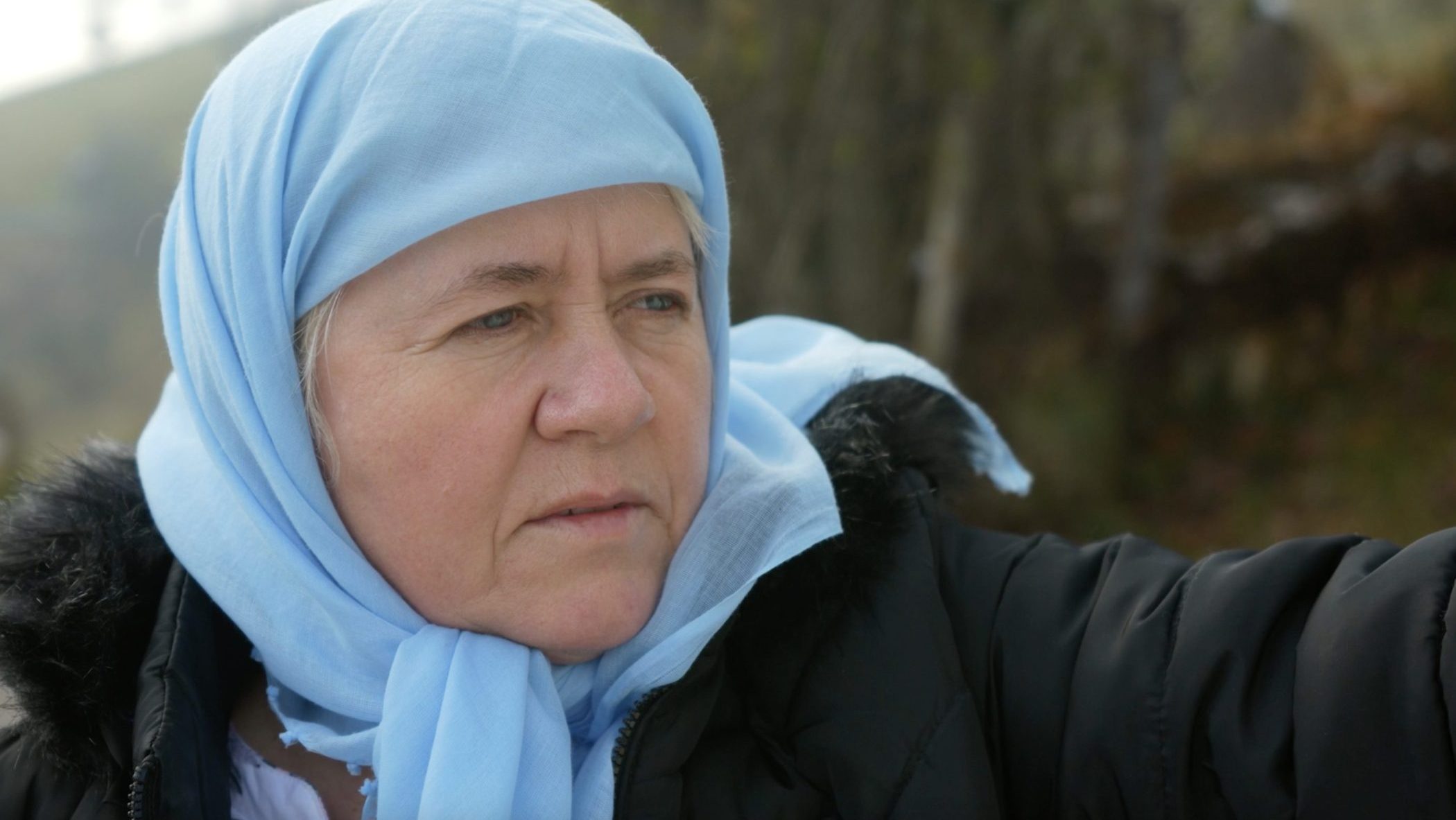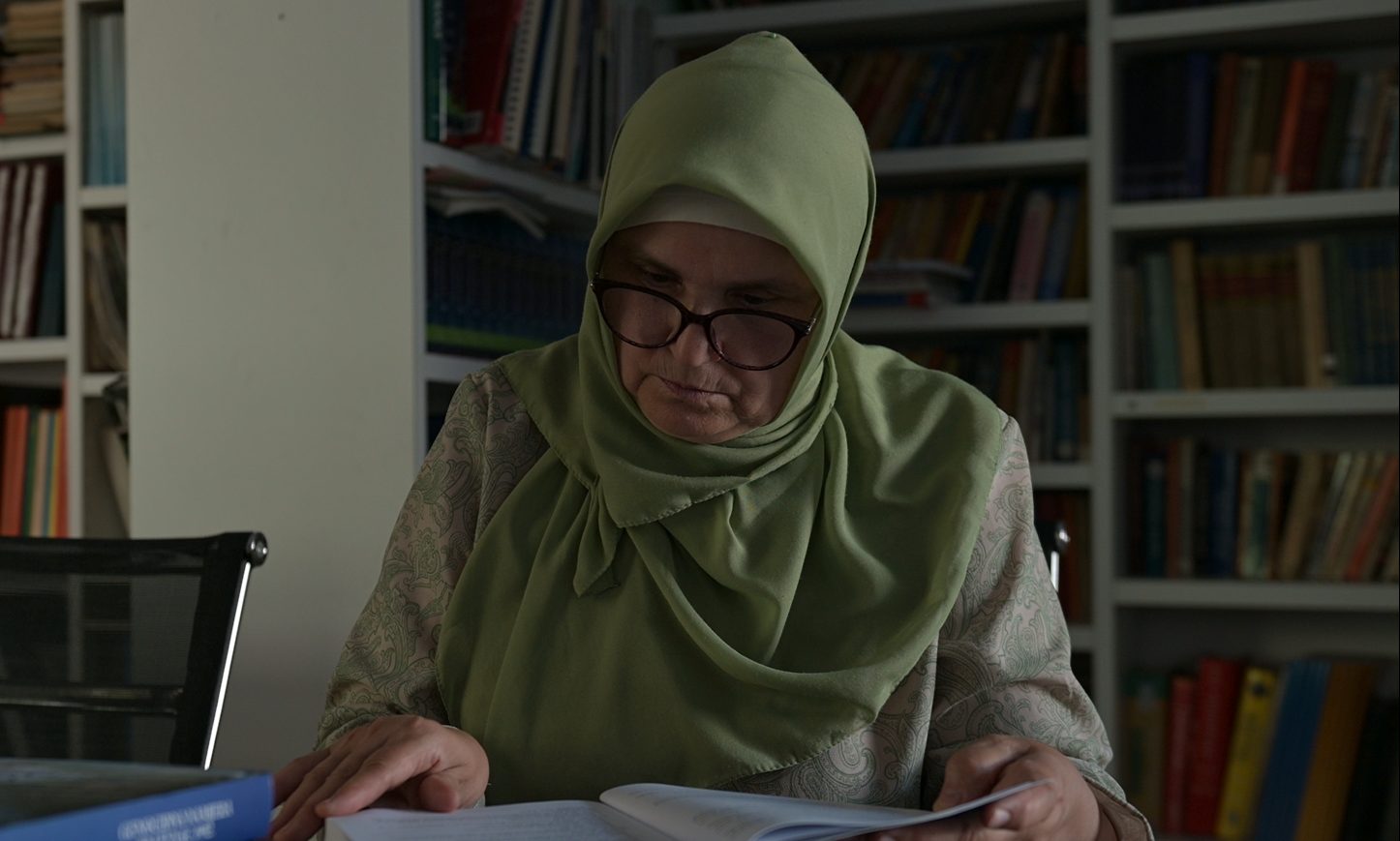This post is also available in: Bosnian
His wife Alma Talic told BIRN that paramilitaries from Serbian criminal boss Zeljko ‘Arkan’ Raznatovic’s unit, accompanied by “local Serbs”, seized her husband Haris from the village of Sehovci along with other Bosniak men.
She said that he went out of the house while she was putting their children to bed and was taken away in a bus.
“I saw him on the road and I called him by his name: ‘Haris, Haris.’ He just turned towards me and said: ‘Take care of the kids,’” she said, recalling the last words that she exchanged with her husband.
A few days after her husband was taken away, Alma left the Sanski Most area with her three-year-old daughter and nine-month-old son and went to Zenica, where she tried to find out about her husband’s fate through the Red Cross.
A grave containing the victims, including her husband, was eventually discovered in Sasina, another village in the municipality of Sanski Most, in 1996.
The killings in Sasina and another nearby village, Trnova, were included in the indictment of Serbian State Security Service officials Jovica Stanisic and Franko Simatovic at the UN court in The Hague.
Stanisic and Simatovic were accused of supporting and controlling the paramilitaries who carried out the murders, but were acquitted of the charge relating to Sasina and Trnova by the Mechanism for International Criminal Tribunals, MICT in The Hague in June 2021, following a retrial.
They were however sentenced to 12 years in prison each for crimes committed by a Serbian State Security Service special unit in Bosanski Samac in Bosnia and Herzegovina in 1992. Stanisic and Simatovic, both powerful and widely-feared figures in Slobodan Milosevic’s regime in Serbia in the 1990s, were found to have supported fighters from the special unit, an armed police force known as the Red Berets, who committed the crimes.
On Tuesday and Wednesday this week, the Mechanism for International Criminal Tribunals in The Hague will hear prosecution and defence appeals against the verdict, with victims’ relatives hoping for convictions on more charges.

Arkan spotted in Sanski Most
The first-instance verdict in the trial found that “on 19, 21, or 22 September 1995, a group of men transported a number of detainees to Sasina in the Sanski Most municipality, where they killed at least 64 of them”.
The verdict also that members of Arkan’s Serbian Volunteer Guard paramilitary unit said shot dead 11 non-Serbs in Trnova on or around September 20, 1995.
Witnesses in the trial described the men who seized the Bosniaks from Sehovci and forced them to get onto buses to be taken away as “Arkan’s men” or “Arkan’s soldiers”, and said that they were speaking Serbian.
Alma Talic said that she heard the captives were first taken to a hotel before being bussed to Sasina to be killed.
Some witnesses said they saw people being forced to get into buses in front of the Hotel Sanus in Sanski Most, and some of them saw Arkan at the hotel, wearing a uniform.
As well as the murders, the Simatovic and Stanisic indictment alleges that Arkan’s fighters detained between 30 and 40 men in the Hotel Sanus, where they kept them in a small room and brutally beat them, causing the deaths of two of the men.
The indictment also claims that women were raped in the hotel and that some capitives were taken to other detention centres in the Sanski Most area.
None of Arkan’s fighters or any other perpetrator involved in these crimes has ever been convicted.

‘Brutalised in every way possible’
Sadmir Alibegovic, the head of the Association of Detainees of Sanski Most, claimed that the paramilitaries led by Arkan first appeared in the area just before the end of the war in September 1995 and set up detention facilities for non-Serbs in the Hotel Sanus hotel and in the Betonirka and Sanakeram factories in the Sanski Most area.
Bosniaks like the Talic family, who had fled to the village of Sehovci from their homes in other villages, were persecuted by Arkan’s fighters, it is alleged.
Alibegovic said that “around 800 to 900 civilians were staying in some 20 houses, sleeping in gardens, barns and houses” in Sehovci.
“Arkan’s men used to go to the village, steal their property, abuse and beat them and sexually abuse women. They brutalised them in every way possible,” he added.
He claimed that the paramilitaries were assisted by local Serbs, their neighbours, who told them who to take away and where to detain and kill them.
“It happened that a group of 11 civilians was taken to the village of Trnova, where they were held in Senad Supuk’s house for some time and then killed with firearms in the cruellest manner possible,” Alibegovic said.
According to Alibegovic, who was held in several detention camps himself at the time, another group of 66 civilians, including one woman, was taken from the detention camps and transported by bus to Sasina, where they were tortured and killed. Two people survived.
“Later on, in the headlights of those same buses, they brought machinery and piled the bodies into the Sasina mass grave near the Catholic church,” Alibegovic said.
The Hague Tribunal prosecution charged Arkan with the crimes committed by members of his paramilitary unit in Trnova and Sasina in September 1995, including murders, cruel treatment and rape. But the notorious crime boss was shot dead in Belgrade in January 2000 and never stood trial.
Relatives of the civilians killed in September 1995 cannot hide their discontent at the fact that none of those responsible has ever been jailed.
Alibegovic said that prosecutors have collected a lot of evidence about the murders in Sasina and Trnova and crimes committed elsewhere in the Sanski Most area, but no indictments have been filed in Bosnia itself for reasons unknown to the victims’ families.
Ahead of the appeal in the Stanisic and Simatovic case, Alma Talic, who was left to look after two young children after her husband was taken away and killed, said that she wants those responsible for his death to face justice.
“It was not easy for me with a nine-month baby and a three-year-old child after crying for so many nights,” she said. “People were taken away unjustly. My husband didn’t do anything wrong. Everyone should answer for what they did.”




